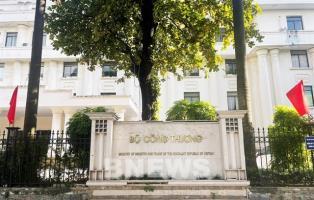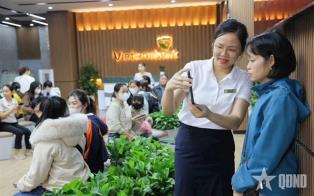The ongoing mergers of provinces and cities opens new opportunities to restructure key agricultural products and develop a more sustainable and innovation-focused agricultural economy.

HÀ NỘI — The ongoing merger of provinces and cities opens new opportunities to restructure key agricultural products and develop a more sustainable and innovation-focused agricultural economy.
Trần Quốc Tuấn, director of Vĩnh Long Province's Department of Industry and Trade, said that the merger of Vĩnh Long, Bến Tre và Trà Vinh into a new Vĩnh Long Province marks a pivotal moment. It demands urgent restructuring of regional industries and production chains, especially in agriculture.
According to Tuấn, agricultural development must now move from conventional methods to a model that prioritises environmental standards and green practices. This involves adopting ESG (Environmental, Social, and Governance) principles and fostering closer collaboration between scientific researchers and enterprises.
“Without compliance with ESG standards, the province's competitiveness will suffer,” he said.
Additionally, Tuấn has highlighted the importance of creating ecological industrial clusters and enhancing both domestic and international trade networks.
One standout example of this new direction is the coconut industry. With over 120,000ha of coconut plantations - roughly 70 per cent of the Mekong Delta’s coconut-growing area - the newly formed Vĩnh Long Province plays a central role in the sector.
Trần Văn Đức, chairman of Bến Tre Coconut JSC, has stressed the urgency of applying ESG standards and shifting from labour-intensive to innovation-led approaches.
“We need to transform our production methods to be environmentally friendly - reducing the use of chemical fertilisers and pesticides while promoting sustainable development,” he said.
Đức also called for preferential policies to support research and development (R&D), and for the coconut industry association to assist businesses in establishing value chains and achieving international certifications like Organic, Fairtrade, and Halal.
He believes this will not only enhance the industry but also attract investment in related sectors like logistics and community tourism.
Another promising direction lies in the integration of rice-shrimp farming, particularly in coastal localities in the Mekong Delta. Nguyễn Văn Thành, director of Phước Thành IV Production & Trading Co, highlighted the rice-shrimp model as a sustainable and climate-resilient farming system.
“This model significantly reduces the need for chemical inputs and improves soil health, while increasing farmers' incomes by VNĐ50 to 120 million per hectare,” he said.
Beyond economic benefits, this model reduces greenhouse gas emissions and mitigates the effects of saltwater intrusion. For instance, rice produced through this system - such as ST25 - is highly valued in international markets for its quality and safety.
Thành emphasised the need for Government support in zoning appropriate rice-shrimp farming areas and incorporating this model into national agricultural development strategies.
In the aquaculture sector, the merger provides an opportunity to build stronger value chains and stabilise market outputs. However, success will depend on each province’s ability to overcome logistical and environmental challenges.
For example, in the newly merged Khánh Hòa-Ninh Thuận Province into Khánh Hòa Province, plans are underway to modernise aquaculture with AI-powered disease monitoring and HDPE cage farming - using high-density polyethylene (HDPE) cages, in Vân Phong Bay. However, this must be supported by effective environmental planning to avoid pollution.
Similarly, the merger of Cà Mau and Bạc Liêu is expected to boost investment in shrimp and seaweed farming - but must be paired with improved wastewater management to ensure sustainable growth.
The merger of Bình Phước and Đồng Nai has reinforced Đồng Nai's position as a hub for industrial crops such as rubber, coffee, cashew, and pepper. The province boasts high productivity and vast specialised cultivation areas. However, the key challenge remains the lack of deep processing capacity.
While coffee and cashew enjoy moderate levels of processing, most other products - like mango, durian, and banana - are exported raw, limiting value addition and international competitiveness.
Addressing this bottleneck will require investment in processing technologies, value chain integration, and brand development.
Experts suggest that with proper restructuring, the export value of these agricultural products could increase by 1.5 to 2 times. — VNS




